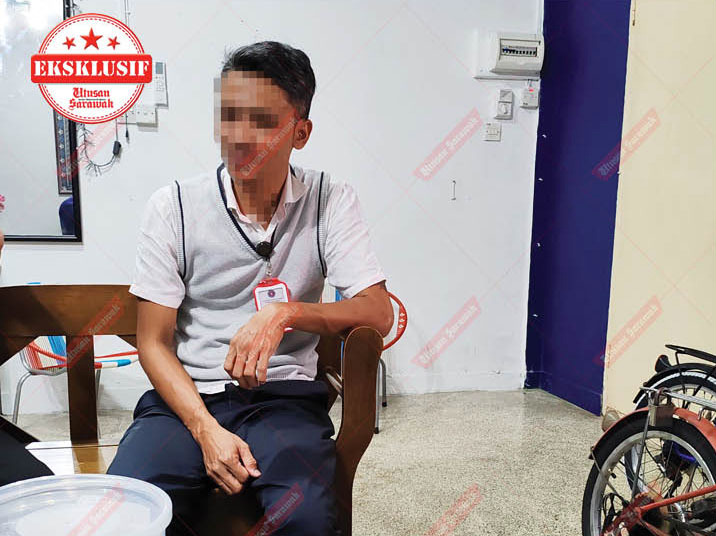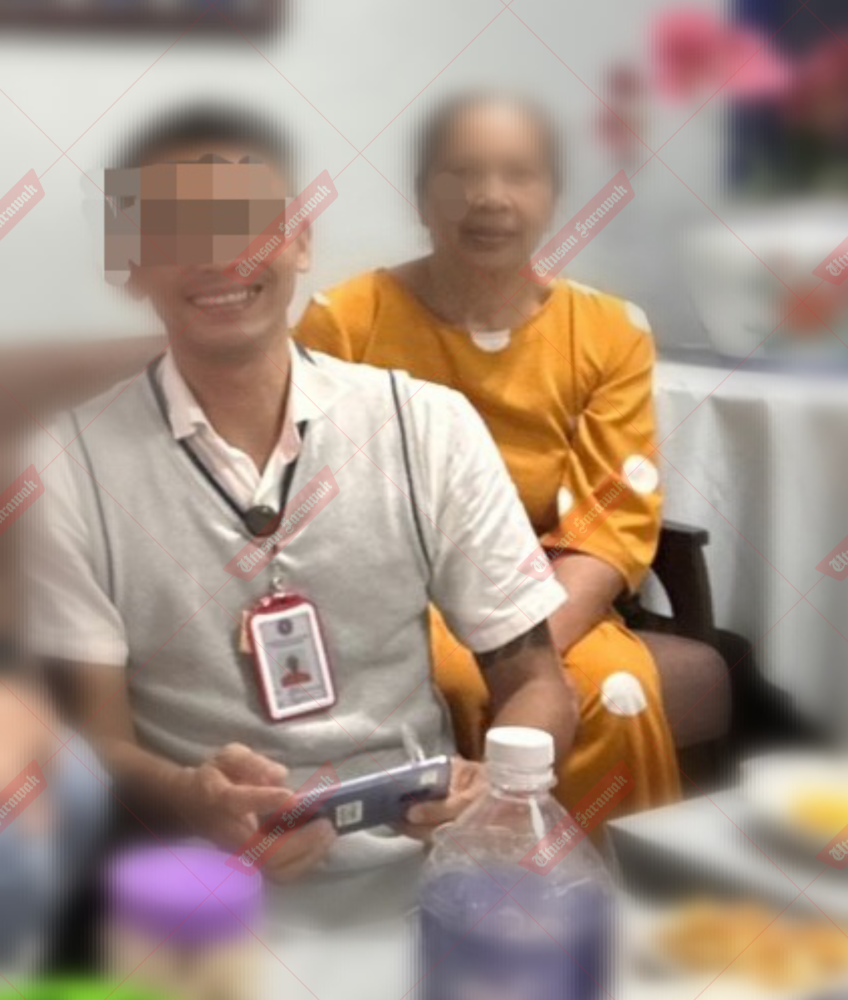
KUCHING: Ali (not his real name) had the world at his feet — a wife, five children, and steady work. But for 16 long years, drugs slowly consumed everything he held dear. He lost his family, his job, his dignity, and almost his life.
Now 39, Ali cuts a very different figure. Cheerful and at ease, Ali wears his AADK tag at home as a reminder of his journey, he smiles easily as he speaks.
“I’ve been clean for two years,” he says proudly, fresh from his discharge from the rehabilitation centre.
But getting here was a battle scarred by pain, secrets, and near tragedy.
Ali’s father passed away in 2015. His brother was jailed for drug peddling. His four sisters, married and living in different towns built stable lives unlike the two males in the house. Ali, however, remained with his mother, who became his anchor when his world collapsed.

He recalls his first taste of drugs in 2007. At 21, while working odd jobs, including towing accident vehicles at night, his friends introduced him to Nospan, an over-the-counter cough suppressant.
“At first it felt harmless,” he said. “But soon, it wasn’t enough.”
From there, Ali chased stronger highs, cocaine, amphetamines, cannabis, inhalants, and eventually methamphetamine, or syabu.
His daily habit cost him RM30 to RM50. When money ran short, he admitted to doing “things I don’t want to remember” just to feed his addiction.
In 2009, marriage gave him a glimmer of hope. He vowed to clean up. For a time, he did better. But addiction crept back, tightening its grip.
Diagnosed with bipolar disorder as a teenager, Ali struggled to cope with fatherhood and depression. His wife discovered the truth when she asked him about receiving monthly jabs at the Sarawak General Hospital for his mental health.
“She tried to accept it,” he said. “But I was falling apart.” Eventually, she left with their children.
Alone and broken, Ali drowned himself in drugs and alcohol. His friends abandoned him. Arrested a few times, he was released as a dependent rather than a dealer. The highs stopped giving pleasure. His mental health spiraled.
Then, one night in desperation, hallucinations and exhausted, Ali walked into the Central police station at 1 a.m. Holding out his hands out, he begged officers at the counter to cuff him telling them.
“I hadn’t slept in days. My body craved drugs. I am so tired. Put me in jail. When will all these end?”
Shocked, the police sent him home and spoke to his mother. The next morning, her long suffering mother went to AADK, pleading for help. Ali was taken to court and ordered into rehabilitation.
Inside the rehab centre, detox was brutal. Ali was placed in isolation with nothing but a toilet in his room.
“It was a nightmare. I thought I would die there and then,” he said, recalling two weeks of cold sweats and withdrawal.
But because it was his own choice, Ali endured. Slowly, he found peace.
After rehab, with his mother’s unwavering support, Ali rebuilt his life step by step. He stopped meeting old friends, attended religious classes three times a week, and focused on staying clean. He is now searching for work and determined not to fall back.
“Don’t even try drugs. Not even cigarettes,” Ali warns. “Life on drugs is a living hell. I’ve worked so hard to get myself clean. I don’t want to go back.”
Today, Ali stands as a reminder that recovery is possible but it takes courage, faith, and the will to fight back when everything seems lost. He now holds dear that he has a future he once thought was all gone.
Ali’s mother who sat with him put in a word of advice to mothers.
“I called police to the house. I went to AADK for my son’s sake. There are mothers put there who knew their sons are on drugs. Report them or the nightmare will not end or vanish,” she said adding that there is no shame to admit and accept reality to help drug-dependent children.
By Connie Chieng